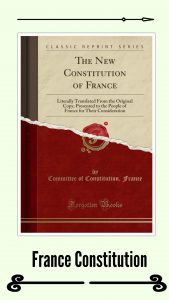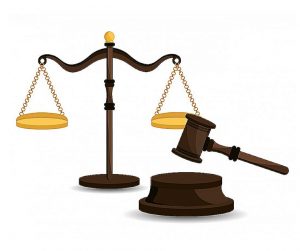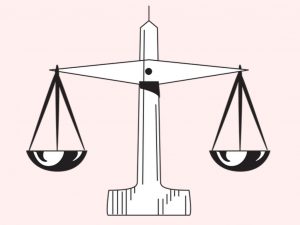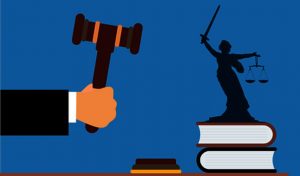Features Of France Constitution of 1791: The short-lived French Constitution of 1791 was the first attempt at a Written Constitution in France. The collapse of Absolute monarchy of the Ancien regime led to the National constituent Assembly formed on the 13th of June, 1789 to write a new constitution which turned the Country into a Constitutional monarchy.

After series of negotiations, this Constitution was accepted by Louis xvi in September 1791, and therefore became effective in France as the French Constitution of 1791.
Recommended: Advantages and Disadvantages of a rigid constitution
Characteristics/Features of the French Constiution of 1791
The following are the major features of the French Constitution of 1791:

1. It is written: The primary feature of the French Constitution of 1791 is that it is a written Constitution, and the first ever written Constitution in France.
2. Constitutional monarch: Another distinctive feature of the French Constitution of 1791 is its introduction of Constitutional monarch, thereby making France a Constitutional monarchial state wherein the powers of the Monarch are defined, and the Monarch who acts only within the parameters of the Written law.
Also see: How to become a successful lawyer
3. Limitation of powers: The introduction of Constitutional monarchy in the 1791 Constitution means that the excessive powers of the Monarch is now being limited to what is stated in the Constitution. Thus, the Monarch will not be permitted to act outside the Constitutional provisions which dictate what and what not such Monarch can do.

4. Separation of Powers: The Doctrine of Constitutional Monarchy has further resulted into Governmental powers being separated and assigned accordingly to defined institutions in the state such as the Legislature, Executive, and Judiciary as defined in Chapter iii, iv, and v of the French Constitution.
Also see: Characteristics of a good constitution
5. Fundamental Rights: The French Constitution of 1971 defines the Fundamental Human Rights of citizens in the state, and it also guarantees these natural and civil rights which includes: Right to equality, Right to employment, Right to personal liberty, Right to elect or choose their religion.
6. Right to vote: The French Constitution of 1971 guarantees the Right to vote albeit it is limited to only active citizens.
Section 2, Title iii of Public Powers in the French Constitution of 1971 identifies an active citizen as a person who was born in the Country, has attained the age of 25 or has paid a direct tax equal at least to the value of three days labour, and to present the receipt thereof, and one who has taken the civic oath.
This therefore means that Women and Children are classified by the Constitution as passive citizens. Thus are precluded from voting.

Recommended: Meaning and types of constitution
7. Law making: Another feature of the French Constitution is its delegation of law making powers on the National Assembly, to make laws and exercise control over the king and ministers.
8. Abolition of Feudalism: Feudalism is a Social and Political system wherein a Lord owns all the land, while the vassals and serfs farms on it. This principle of feudalism was abolished by the French Constitution of 1791.

Shortcomings of The French Constitution of 1971
While the French Constitution of 1791 is apprised for its efforts in producing a written Constitution in France, and its introduction of Constitutional Monarchy, there are quite a number of shortcomings which led to the short-lived era of the Constitution.
These shortcomings include:
a. The constitution was biased towards the wealthy as it granted them way more privileges, benefits, and representation to them over the poor.
b. In the French Constitution women were precluded from voting, and franchise wasn’t extended to every citizen.
c. Equal Rights were not given to all citizens as some citizens enjoyed more benefits by virtue of their race, Gender, economic or social status.
d. The constitution made only the highest taxpayers eligible to become the elector.
Recommended: Meaning and pillars of a democratic society
e. While the Constitution introduced a first of its kind Constitutional Monarchy, the Monarch by his actions showed no faith in the Constitution.
f. Laws of the state were made by the members of the National assembly who were indirectly elected. Thus, the National Assembly was not accountable to its people.
g. These shortcomings led to the short-lived nature of the French Constitution of 1791 and the adoption of the French Constitution of 1793 which was intended to modify these shortcomings.

Edeh Samuel Chukwuemeka, ACMC, is a lawyer and a certified mediator/conciliator in Nigeria. He is also a developer with knowledge in various programming languages. Samuel is determined to leverage his skills in technology, SEO, and legal practice to revolutionize the legal profession worldwide by creating web and mobile applications that simplify legal research. Sam is also passionate about educating and providing valuable information to people.